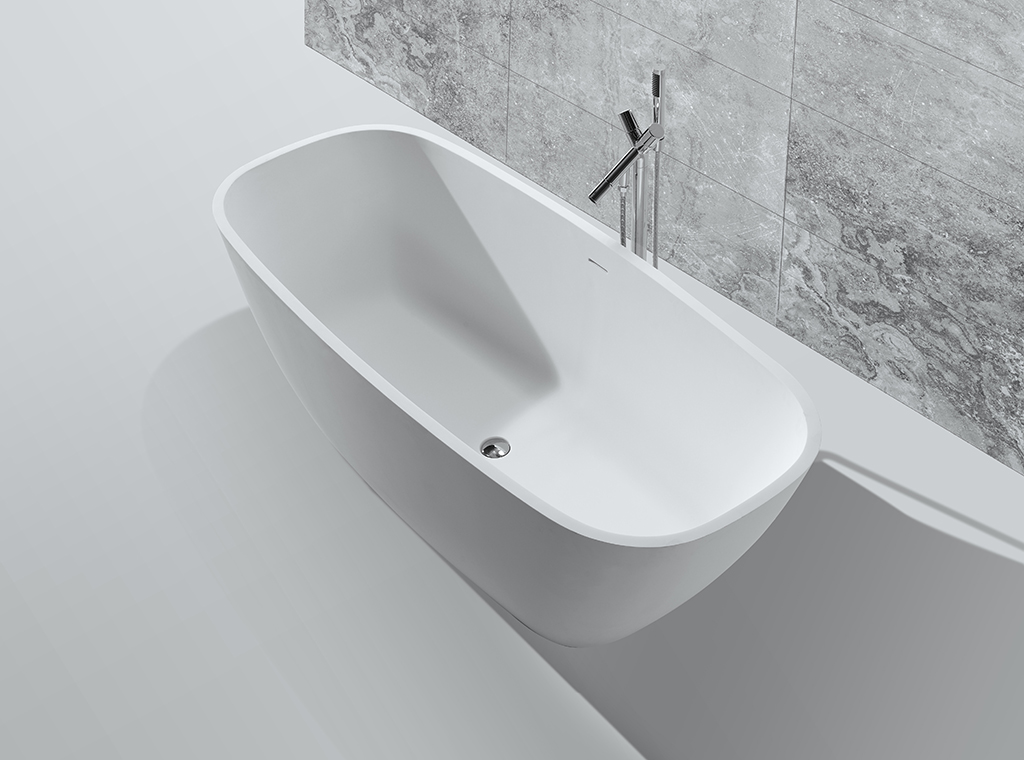Quality assurance is a cornerstone of solid surface production, ensuring that each product meets stringent standards of excellence in terms of durability, aesthetics, and performance. Throughout every stage of the manufacturing process, from material selection to final inspection, quality assurance protocols are in place to guarantee that only the highest quality products reach the market.
- Material Selection and Testing: The quality assurance process begins with the careful selection of raw materials. High-quality resins, minerals, and additives are sourced from reputable suppliers, each batch thoroughly tested to ensure consistency and purity. Material testing may include checks for strength, durability, color consistency, and chemical resistance to ensure that they meet the factory’s specifications.
- Production Processes and Control: Once the materials are approved for use, they undergo a series of production processes under strict quality control measures. Automated machinery and precision equipment are calibrated regularly to maintain accuracy and consistency. Skilled technicians oversee each step of the manufacturing process, monitoring variables such as temperature, pressure, and curing time to ensure optimal results.
- Quality Control Inspections: Throughout production, products undergo rigorous quality control inspections to identify any defects or imperfections. These inspections may involve visual checks, dimensional measurements, and performance testing to ensure that products meet or exceed industry standards. Any products that do not meet the required criteria are flagged for further review or corrective action.
- Finishing and Surface Treatment: Surface finishing plays a critical role in the quality assurance process, with meticulous attention paid to achieving a flawless finish. Skilled craftsmen carefully sand, polish, and buff each surface to remove any imperfections and enhance its appearance. Surface treatments, such as sealing or coating, may also be applied to improve durability and resistance to stains and scratches.
- Packaging and Shipping: Quality assurance extends beyond the factory floor to include packaging and shipping processes. Products are carefully packaged to protect them during transit, with appropriate padding and reinforcements to prevent damage. Shipping logistics are carefully managed to ensure timely delivery and minimize the risk of mishandling or delays.
- Customer Feedback and Continuous Improvement: Feedback from customers plays an essential role in the quality assurance process. Manufacturers actively solicit feedback from customers and partners to identify areas for improvement and address any issues or concerns promptly. This feedback loop enables continuous improvement and drives innovation in product design, manufacturing processes, and quality control measures.
- Certifications and Compliance: Many solid surface supplier manufacturers adhere to industry certifications and standards to demonstrate their commitment to quality assurance. Certifications such as ISO 9001 for quality management systems and NSF/ANSI for product safety and performance provide assurance to customers that products meet rigorous quality and safety requirements.
In conclusion, quality assurance is a multifaceted process that encompasses every aspect of solid surface production, from material selection to final inspection. By implementing robust quality control measures, manufacturers ensure that each product meets the highest standards of excellence, providing customers with durable, reliable, and visually stunning surfaces for a wide range of applications.



